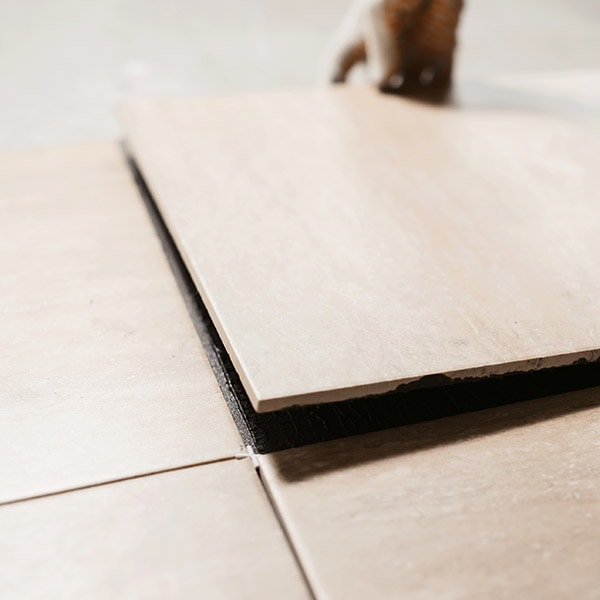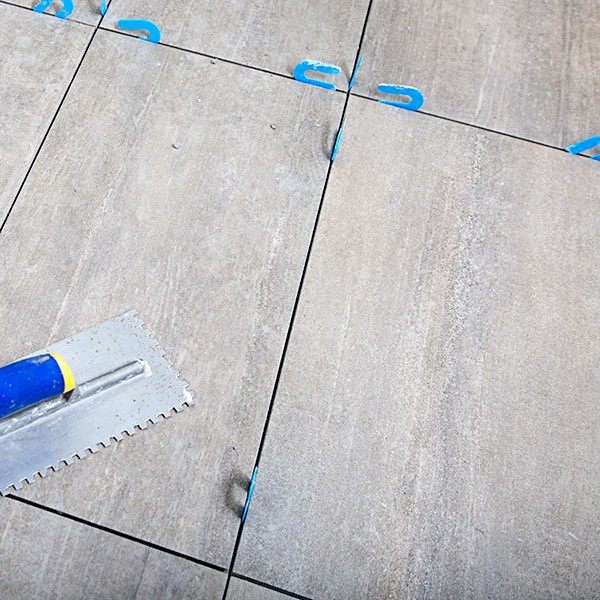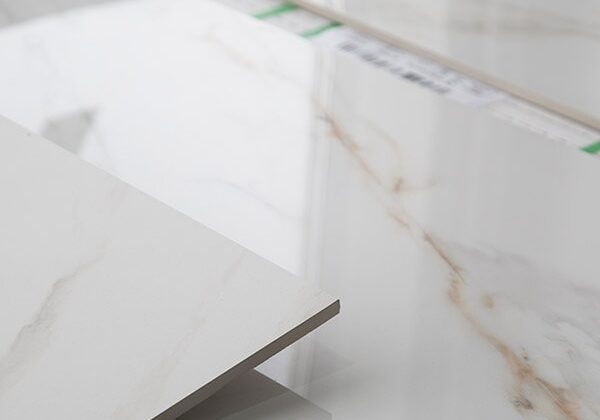Add a touch of elegance and sophistication to your commercial space with ceramic tile and natural stone flooring products.
Known for their timeless appearance, easy-to-clean surfaces, and long-standing durability when used in the right environments, our team can help you transform the entire look of your space. Whatever commercial environment you’re trying to enhance, we’ll be on hand to ensure you make the right decision for you.
Ceramic Tile
Ceramic tile is a versatile, durable flooring option offering endless commercial space design possibilities. Fired at high temperatures, it forms a dense, hard surface known for its strength, wear resistance, and low maintenance. With various sizes, shapes, colors, and patterns, ceramic tile allows for creative combinations, whether replicating natural stone elegance or showcasing bold aesthetics. It's inherent moisture resistance and easy cleaning make it suitable for retail, hospitality, and office spaces. Ceramic tile is a durable and timeless flooring solution for commercial environments.


Porcelain Tile
Porcelain tile is a durable and versatile choice for commercial flooring. It offers exceptional strength, resistance to wear, and moisture resistance. With a wide range of design options, including colors, sizes, textures, and patterns, porcelain tile can achieve sophisticated and upscale aesthetics in various commercial spaces, requiring minimal maintenance.
Thin Porcelain Panel Tile
Also known as large format porcelain tile or thin porcelain tile (TPT), it is an innovative and versatile flooring solution. It is characterized by its exceptionally large size, typically exceeding traditional tile dimensions up to 5x10 feet and minimal thickness between 3-6mm. TPT is structurally reinforced with a .5mm glass fiber mesh backing.
Natural Stone Tile
Natural stone tile, such as marble, limestone, travertine, slate, and granite, provides a luxurious and timeless flooring option. Each stone type has unique characteristics and aesthetics, adding depth and sophistication to commercial environments. Natural stone tiles, durable and long-lasting, will enhance the beauty of any space, requiring proper maintenance and sealing for stain and damage prevention.

Tile Specific Surface Preparation
Regarding surface preparation for tile installation, including ceramic, porcelain, and stone tiles, several key considerations and tips should be kept in mind to ensure a successful and long-lasting installation. Here are some specific surface preparation tips and concerns:
- Subfloor Evaluation: Before tile installation, evaluating the subfloor's condition is essential. The subfloor should be structurally sound, flat, and free from cracks or significant irregularities. Address any issues with the subfloor to provide a stable and even surface for tile installation.
- Surface Cleaning & Leveling: Ensure the surface is clean, free from dust, debris, grease, or any substances that may affect tile adhesion. Leveling the surface to avoid lippage or unevenness between tiles is also crucial. Floor leveling compounds can be used to achieve a smooth and level substrate.
- Moisture & Crack Suppression: Moisture and cracks can compromise the integrity of the tile installation. Conduct moisture testing to determine if a moisture barrier or crack suppression membrane is required. These products help prevent moisture-related issues, such as tile delamination and cracks due to substrate movement or expansion/contraction.
- Expansion & Contraction Joints: Tiles, especially large format tiles, can expand and contract with temperature changes. Proper expansion and contraction joints must be incorporated to allow for these movements and prevent potential cracking or buckling of the tiles. Follow industry guidelines and specifications for joint spacing and incorporate suitable joint materials.
- Proper Adhesive Selection: Selecting the appropriate adhesive based on the tile type, size, and the specific conditions of the installation area is vital for a successful installation. Different adhesives are designed for different tile materials and substrate conditions. Trust Fazio Floors to select the proper adhesive based on factors such as moisture resistance, flexibility, and compatibility.
- Tile Layout & Bonding: This is where the pros stand out from the amateurs. Tile layout must be planned carefully, considering aesthetics, alignment, and avoiding narrow cuts or slivers. Adequate tile bonding is essential to prevent hollow spot that can cause cracks, especially in areas prone to heavy traffic. The correct trowel size and technique must be used to ensure full coverage and proper bonding of the tiles.
- Grouting & Sealing: Once the tiles are installed, ensure proper grouting and sealing to protect the grout lines and the tiles. Grout lines should be filled adequately, and the grout should be allowed to cure before applying a sealant to enhance stain resistance and overall durability. We also offer grout products that do not require sealing.
Types of Grout
Grout is a cementitious material used to fill the gaps, known as grout joints, between tiles. Its primary purpose is to provide structural support, prevent tile movement, and seal the gaps to protect against moisture intrusion and dirt accumulation. Different types of grout are used in the commercial environment based on specific requirements and conditions.
- Cementitious Grout: This is the most commonly used grout in commercial tile installations. It is made from a mixture of cement, sand, and water. Cementitious grout is known for its durability and versatility, and it is available in sanded and unsanded varieties. Sanded grout is suitable for wider grout joints, providing better strength and resistance to cracking, while unsanded grout is used for narrower joints.
- Epoxy Grout: Epoxy grout is a highly durable and stain-resistant option. It comprises epoxy resin and a hardener, resulting in a strong, waterproof, and chemical-resistant grout. Epoxy grout is ideal for commercial environments that require exceptional resistance to staining, chemicals, and heavy foot traffic. It is commonly used in areas prone to moisture, such as commercial kitchens and bathrooms.
- Urethane Grout: Urethane grout is a newer type of grout that offers superior flexibility and resistance to cracking. It is made from a blend of polymers and additives. Urethane grout is known for its color consistency, low porosity, and resistance to mold and mildew. It is popular for commercial applications where design flexibility and durability are key considerations.
- Modified Cementitious Grout: Modified cementitious grout is a variation of cementitious grout that incorporates additional additives, such as latex or polymer modifiers, to enhance its properties. This type of grout provides improved flexibility, adhesion, and water resistance compared to traditional cementitious grout. It is commonly used in areas where slight movement or vibration is expected, such as over concrete substrates.
Choosing the right type of grout for a commercial tile installation depends on factors such as the tile material, joint size, expected foot traffic, moisture levels, and desired aesthetics. It is essential to consult with a professional tile and grout installation expert to determine the most suitable grout type for your specific commercial application, ensuring optimal performance and longevity of the tiled surface.
What is the difference between ceramic, porcelain, and natural stone tile?
Ceramic tile is made from clay and other natural materials, while porcelain tile is also made from clay that has a very fine grain and is fired at higher temperatures, resulting in a denser and more durable tile. Natural stone tile is sourced from quarries and includes options such as marble, granite, limestone, travertine, and slate, each with unique characteristics and aesthetics.
Which type of tile is best for commercial spaces?
How do I maintain and clean commercial tile?
Can commercial tile be installed in wet areas?
How durable is commercial tile?
Can tile be installed over existing flooring?
In many cases, tile can be installed over existing flooring, such as vinyl or ceramic tile. However, it is important to evaluate the condition and stability of the existing surface to ensure proper adhesion and avoid future issues. Consulting with a professional installer is recommended.